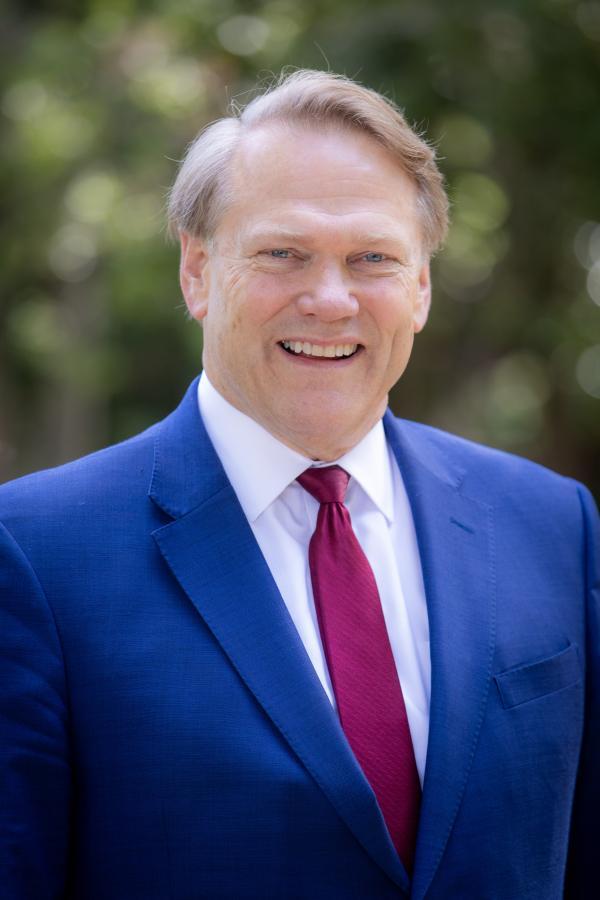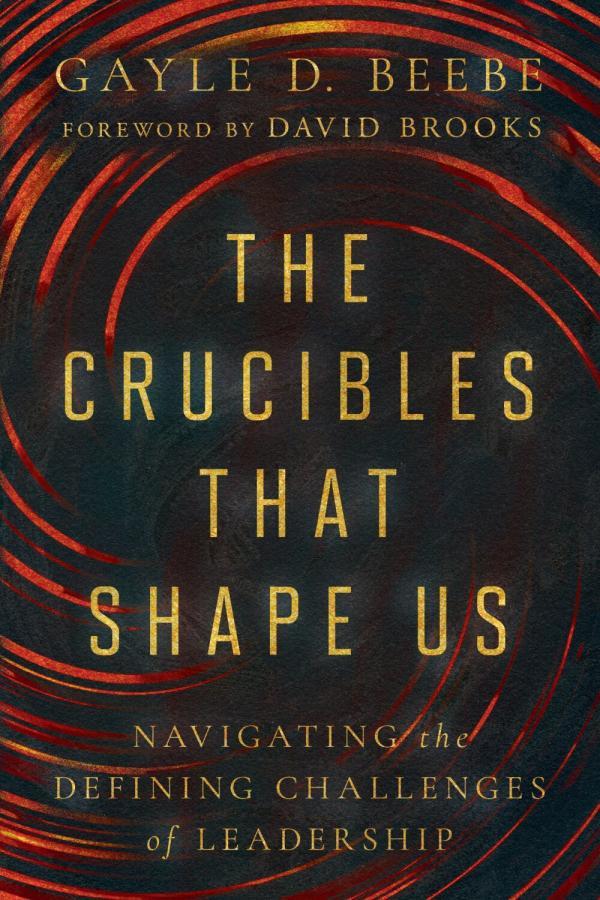Westmont Magazine Spring 2024 The Crucibles That Shape Us
Navigating the Defining Challenges of Leadership
By Gayle D. Beebe
In his new book, President Beebe explores seven critical crucibles: Missed Meaning, Enduring Challenge, Human Treachery, Awakened Moral Conscience, Social Conflict, Human Suffering and Personal Choice. These excerpts reveal the personal nature of this work, now available from InterVarsity Press.
My book explains how we can learn from the crucibles of life, invite God into the middle of them, and subsequently turn them into triumphs of the human spirit. Crucibles have the power to shape us by refining our character, calling forth our best effort, and teaching us to rely on God. Rarely, if ever, anticipated, crucibles test our capacity to adapt and change. In turn, they also invite us to find new solutions to vexing problems to secure successful and sustaining outcomes both personally and professionally.
— Introduction, page 12
Together, these mental models or frameworks of meaning provide the architecture I need both to understand and communicate how I approach leadership and seek to fulfill my responsibilities. This structure has helped me develop a disposition of daily prayer and meditation both for centering my life in God and for gaining deeper self-awareness and self-understanding. Specifically, I pray through my known schedule for the day, recognizing that during the school year, the day rarely begins and ends as I expect. Through the process of spiritual centering, I see and receive input that strengthens my perceptions and insight so I can self-correct when necessary.
Crucibles test our capacity to adapt and change.
I’ve developed a rich appreciation for the roles and responsibilities of various sectors of our organization and how much we can do when we focus on our core work — and how much can be destroyed when we get out of our appropriate lane. Defining our role is so important and requires trust among team members. We need to be aware of the possibility of saboteurs and charlatans.
Clarity of purpose helps us build sound strategies, which provide the confidence to engage in successful execution. It guides the hiring and retention of top people who are competent and driven to succeed. Our commitment to create a culture of integrity, care and respect plays a crucial role in how we act — and we fully recognize this goal as aspirational and requiring continuous improvement.
— Chapter One: The Crucible of Missed Meaning, pages 29-30
No other crucible does more to develop personal wisdom than the Crucible of Enduring Challenge. Although we wish our life and our leadership responsibilities were consistent from day to day, they rarely are. While every leader faces enormous challenges that require a response, it’s still difficult to anticipate the severity of unfolding events and the length of time it will take to resolve them. Each situation demands a vision that exceeds the inconvenience and a commitment to strategies and tactics that help us persevere. Let me begin by suggesting 12 ENDURING LESSONS I’ve learned along the way that can guide you on your own leadership journey.
Order Your Copy Today!
Enjoy today; tomorrow has enough worries of its own.
Never open a two-front war if you can help it.
Don’t overreact to overreactions.
Don’t say everything you think (I’ve never gotten in trouble for things I thought but didn’t say).
Stay emotionally present even when you don’t feel like it.
I’ve never had an opportunity expand without a potential problem expanding with it.
Be disciplined with what you share and with whom you share it.
Avoid no-win arguments; it’s like wrestling with a pig. You both get dirty, and the pig loves it.
Cultivate a results-oriented mindset with attention to doing the right activities.
Cultivate an aspiring edge that stimulates hope and renewal.
Maintain a commitment to open communication and conflict resolution.
Always work to outlast the opposition except when you know it’s the right time to leave for the right reason.
Anything worth doing will take time, effort and human ingenuity.
No special method or secret way can keep an organization on track. Regardless of the challenge, you must stay vigilant about the mission and purpose and not let all that happens to you and around you
distract you. We often wish we could find the secret formula, but everything we know suggests we just have to do the work.
When I was interviewing for the presidency at Westmont, the people who met with me asked how I would keep the college from wandering away from its mission. They asked the question with the unspoken assumption that colleges, like countries, intend to endure. I share this assumption, but I also responded by answering that I could only guarantee that I’d show up every single day prepared to do the work to stay on course. I explained that I’ve seen many boards and administrations that believe putting leadership on autopilot will ensure everything naturally stays on course. The reality is just the opposite. Unless you stay vigilant, organizations — like individuals — always wander off. How, then, do we cultivate the resilience and perseverance to stay the course?
Scripture teaches that these qualities grow out of our life with God and emphasizes the importance of persevering in the face of obstacles and setbacks. In truth, anything worth doing will take time, effort and human ingenuity. As others have noted, all good plans eventually degenerate into hard work. Through persevering, we not only develop our responses and plans, but we learn how to adjust to changing circumstances to make the contribution God put us on earth to make. Our character develops as we become the best expression of ourselves. At some point, we realize we’re committing our life to purposes that will outlive us.
— Chapter Two: The Crucible of Enduring Challenge, pages 35-37

